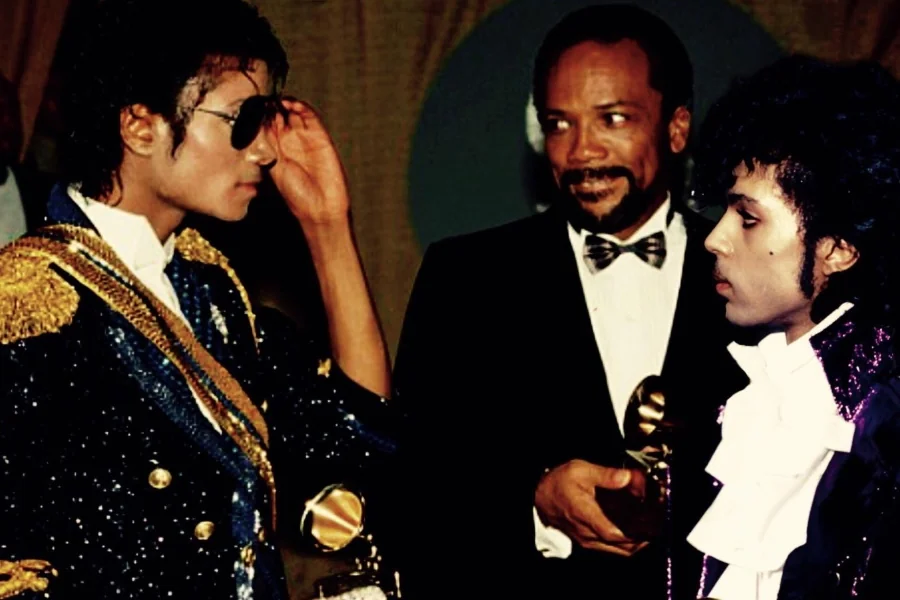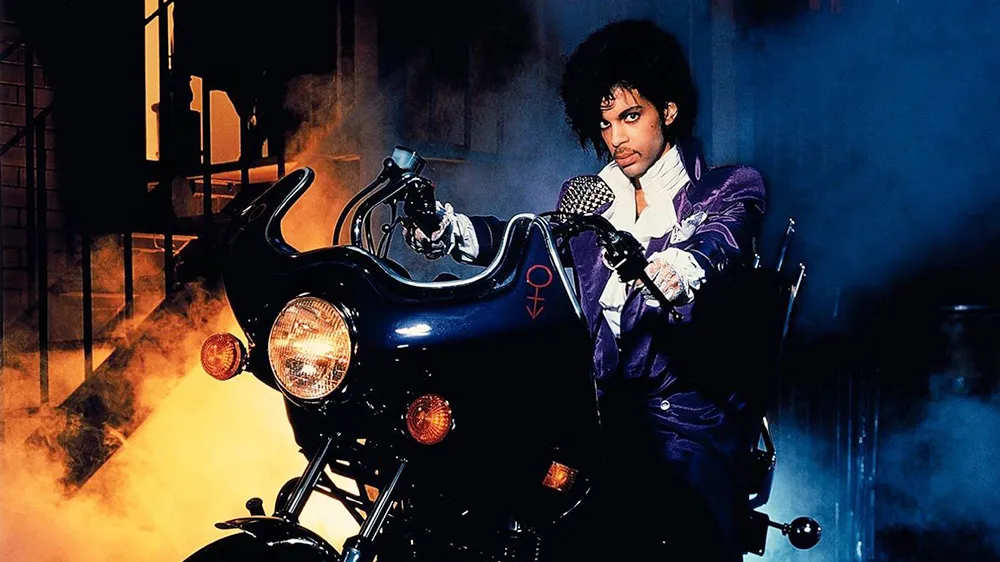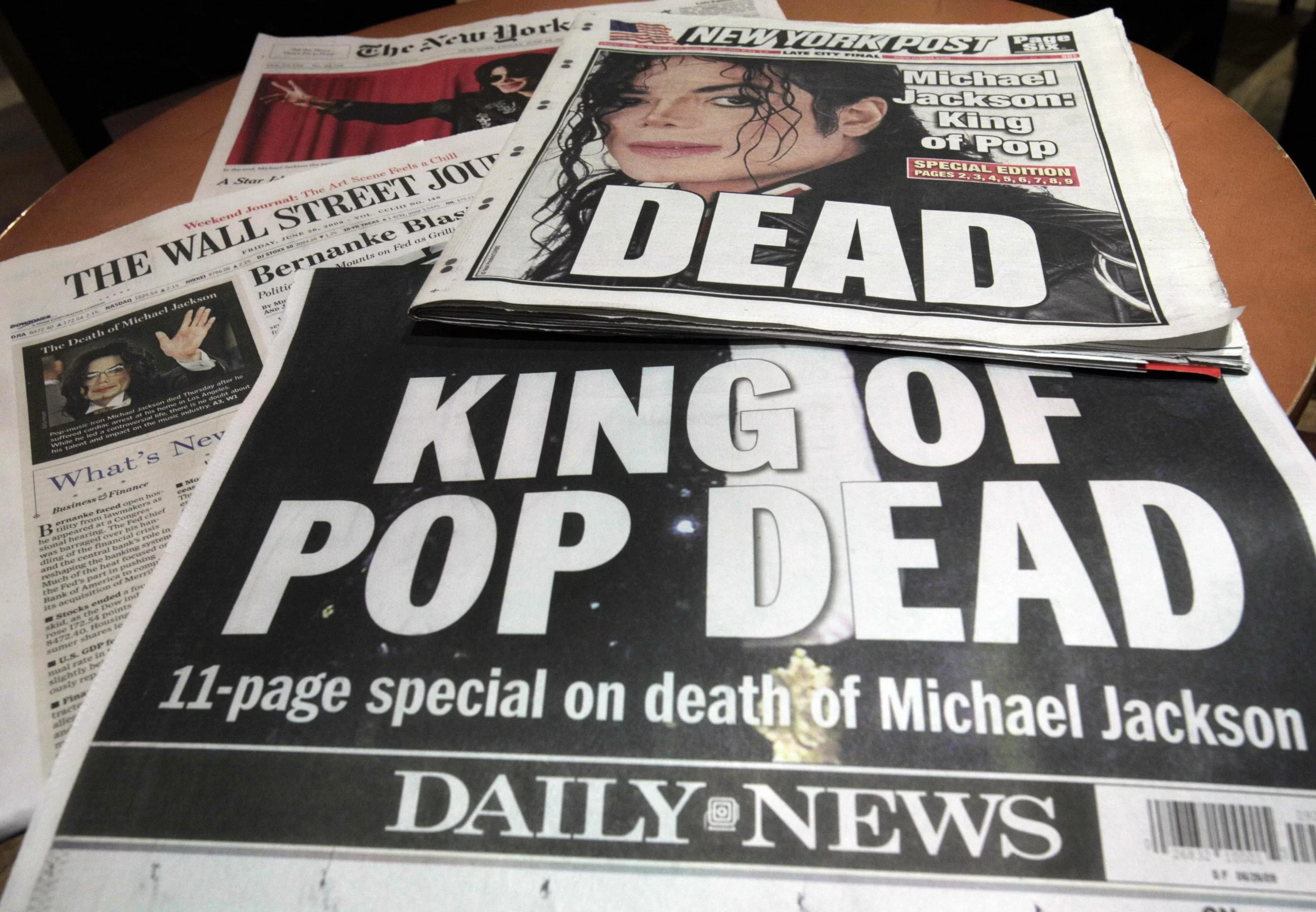
June 25 holds a special place in music history, marking both the release of an iconic album and the passing of a legendary artist. On this date in 1984, Prince released his groundbreaking album “Purple Rain,” a record that would redefine his career and solidify his place in the pantheon of music greats. Little did anyone know that this moment would start a 25-year countdown to another significant event in music history: the passing of Michael Jackson on June 25, 2009. These two events, though separated by a quarter-century, are tied together by their profound impact on the music industry and popular culture.
In the summer of 1984, Prince unleashed “Purple Rain” onto the world, a record that was both a commercial juggernaut and a critical triumph. The album, which served as the soundtrack to the film of the same name, featured hits like “When Doves Cry,” “Let’s Go Crazy,” and the iconic title track “Purple Rain.” Each song showcased Prince’s eclectic style and unparalleled talent, blending rock, funk, pop, and R&B into a sound that was uniquely his own.

“Purple Rain” was more than just an album; it was a cultural phenomenon. It spent 24 consecutive weeks atop the Billboard 200 chart and went on to sell over 25 million copies worldwide. Critics lauded it as a masterpiece, praising Prince’s innovative approach to music production and his ability to convey deep emotion through his lyrics and performances. The album’s success catapulted Prince into the stratosphere of music stardom, establishing him as a leading figure in the industry and a creative visionary.
The influence of “Purple Rain” extended beyond the music charts. The accompanying film, also titled “Purple Rain,” became a cult classic, further cementing Prince’s status as an icon. His flamboyant fashion, charismatic stage presence, and genre-defying music inspired countless artists and left an indelible mark on the cultural landscape of the 1980s and beyond.
Fast forward 25 years to another June 25, and the music world faced a devastating loss. On this date in 2009, Michael Jackson passed away at the age of 50. Known globally as the “King of Pop,” Jackson’s death sent shockwaves around the world and triggered an outpouring of grief from fans, fellow musicians, and the general public.

Michael Jackson’s influence on music, dance, and pop culture was profound. From his early days with The Jackson 5 to his solo career, Jackson continually pushed the boundaries of what was possible in music and performance. Albums like “Thriller,” “Bad,” and “Dangerous” produced some of the biggest hits in music history and set new standards for music videos with groundbreaking visuals and storytelling.
Prince and Michael Jackson, both musical prodigies of their time, shared a complicated relationship characterized by mutual respect, rivalry, and occasional friction. Despite their differences in musical style and public personas, they were often compared to each other as they pushed the boundaries of pop music. Their rivalry began in the 1980s, with each artist trying to outdo the other in terms of innovation and chart dominance.
One of the most notable moments in their relationship was when Michael Jackson invited Prince to be a part of the song “Bad.” The idea was for both stars to sing a duet and appear together in the music video. However, Prince declined the offer, famously telling Jackson, “The first line of that song is ‘Your butt is mine.’ Now who’s going to sing that to whom? Because you sure ain’t singing that to me, and I sure ain’t singing that to you,” as reported by Rolling Stone. This playful, yet pointed, remark highlights the underlying tension and competitiveness between the two icons.
Despite their rivalry, there were moments of mutual admiration. Prince once praised Michael Jackson’s work, acknowledging in an NPR interview the revolutionary impact of “Thriller” on the music industry. He recognized Jackson’s unparalleled ability to captivate audiences worldwide and his innovative approach to music videos. Jackson, too, had a deep respect for Prince’s musicianship, often marveling at his skills as a multi-instrumentalist and performer, as noted by Billboard.
Their rivalry wasn’t always serious; it also had its humorous moments. In a widely recounted anecdote in The Guardian, Prince allegedly showed up to one of Michael Jackson’s concerts and tried to upstage him by pulling various stunts, including challenging Jackson to a game of table tennis. Although these antics added a playful edge to their competition, they also underscored the relentless drive both artists had to be the best.
In a rare moment of candid reflection, Prince once said in a Pitchfork interview, “I don’t see Michael as a rival. I see him as someone who pushed me to be better, to innovate, and to strive for greatness.” This sentiment was echoed by those close to Jackson, who believed that the presence of Prince in the music industry motivated Jackson to continually raise his own bar, as noted by the BBC.
Jackson’s contributions to dance were equally significant. His signature moves, like the moonwalk, became iconic, and his elaborate music videos set a new bar for artistry and innovation in the medium. These videos were more than just promotional tools; they were short films that told compelling stories, featured intricate choreography, and pushed the boundaries of what a music video could achieve. Jackson’s visionary approach to integrating dance with music videos in hits like “Thriller,” “Beat It,” and “Smooth Criminal” transformed the way artists presented their work and engaged with audiences, leaving a lasting legacy that continues to influence performers around the world.
The news of Jackson’s death brought the world to a standstill. Fans gathered in cities across the globe to pay their respects, and media coverage was extensive as people reflected on his life and legacy. His passing marked the end of an era in the music industry, a poignant reminder of the fleeting nature of fame and the enduring power of his art.
A public memorial service for Michael Jackson took place on July 7, 2009, at the Staples Center in Los Angeles, California, twelve days after his passing. Prior to the public event, a private family service was held at Forest Lawn Memorial Park’s Hall of Liberty in Hollywood Hills, followed by a gathering in Beverly Hills for Jackson’s family and close friends.
Jackson’s closed, solid-bronze casket, adorned with 14-karat gold and lined with blue velvet, unexpectedly arrived at the memorial just before 10:00 a.m. local time and was placed in front of the stage. The service began shortly after 10:30 a.m. with music and a eulogy delivered by Pastor Lucious Smith. The stage was decorated with numerous floral arrangements, and screens behind it projected photographs and film of Jackson and the Jackson 5. Music and video montages highlighted his life from the beginning of his career to its end.

The memorial service was organized by Jackson’s concert promoter, AEG Live, and AEG Ehrlich Ventures, LLC (Kenneth Ehrlich, executive producer). They distributed 17,500 free tickets to fans worldwide through an online lottery, which received over 1.2 million applications in 24 hours and garnered over half a billion hits to the webpage. Although an estimated 750,000 to a million fans were expected to gather outside the Staples Center, city and police officials urged fans to stay home due to Los Angeles’ $530 million budget crisis. Streets and highway exits around the Staples Center were closed off, and 3,000 officers, marking the largest security effort since the 1984 Olympics, were deployed at a cost of $1.4 million to the city.

The rivalry and camaraderie between Prince and Michael Jackson pushed both artists to their creative peaks. Their simultaneous rise to superstardom in the 1980s created a dynamic and thrilling era in music history, one where the boundaries of what was possible in pop music were continually expanded. This friendly competition not only defined their careers but also elevated the music industry as a whole.
In remembering June 25, we honor the legacy of two musical giants who changed the world with their talent and vision. It’s a day to reflect on how far music has come and how these extraordinary artists have shaped its journey. As their music continues to play on, so too does their spirit, inspiring future generations to dream big, push boundaries, and create fearlessly.









Leave a Reply